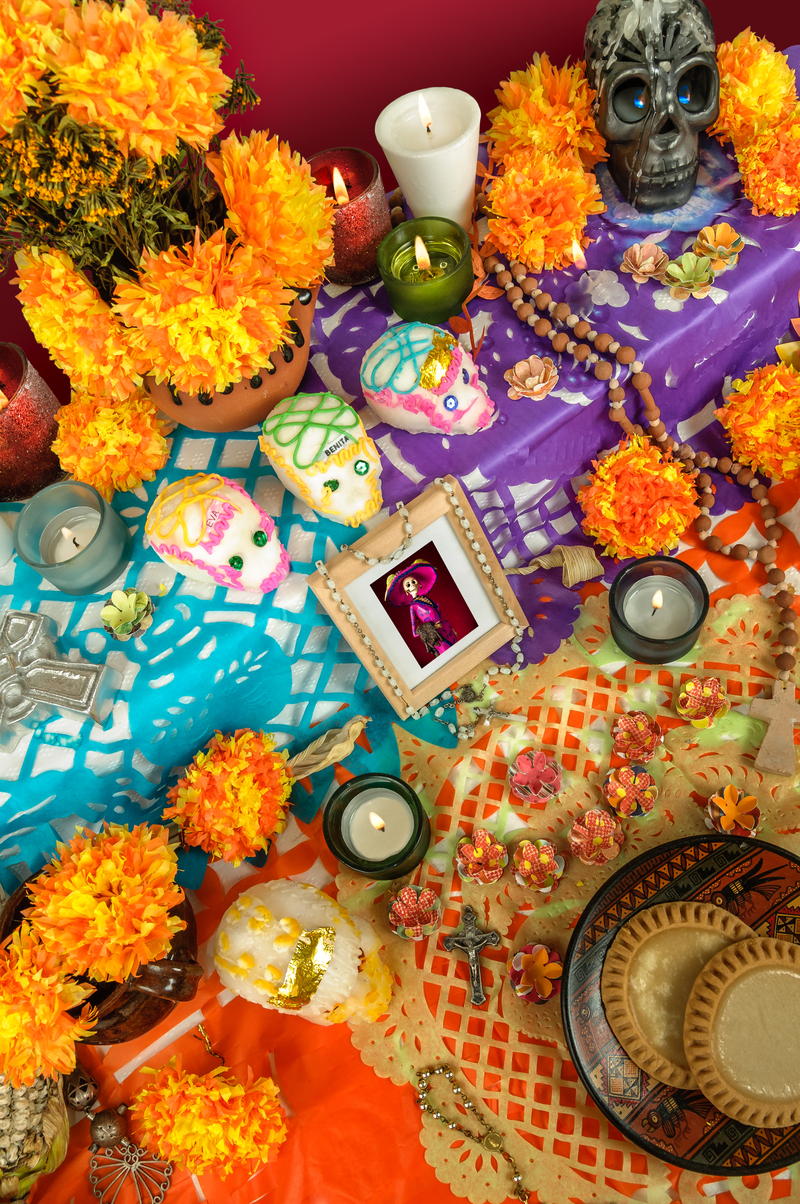Divine Blooms: Greek Mythology's Floral Legends
Greek mythology is richly woven with fantastical tales of gods, heroes, and creatures. However, within these divine narratives, a lesser-known yet equally fascinating theme emerges: the significance of flowers. These floral legends are not merely enchanting anecdotes; they communicate profound themes about life's transience, power, and beauty. In this article, we delve into some of the most captivating floral legends in Greek mythology, revealing the hidden meanings and enduring legacies behind these divine blooms.
Narcissus: The Flower of Self-Love and Tragedy
One of the most poignant stories in Greek mythology is that of Narcissus, a beautiful youth who fell in love with his reflection. This myth explores themes of vanity, self-love, and inevitable destruction. According to the legend, Narcissus was so enraptured by his own image in a pool of water that he could not tear himself away. Eventually, he perished, consumed by his obsessive self-admiration. From the place where he died, a flower grew--the narcissus, embodying beauty tinged with melancholy.
The tale of Narcissus serves as a cautionary reminder about the dangers of excessive self-love and the ephemeral nature of beauty. The flower itself, with its delicate white petals and distinctive corona, symbolizes this duality--both alluring and a reminder of the perils of narcissism.

Hyacinth: The Bloom of Devotion and Sorrow
The story of Hyacinth is another poignant myth that intertwines with the world of flowers. Hyacinth, a beloved companion of Apollo, the god of the sun, was tragically killed during a discus-throwing contest. Struck by a discus accidentally thrown by Apollo, Hyacinth's blood mingled with the earth, giving rise to the hyacinth flower. In essence, this flower stands as a symbol of deep friendship, love, and loss.
Apollo's grief was immense, and he immortalized Hyacinth by creating a flower from his blood, ensuring that his memory would never fade. This tale speaks to the themes of divine companionship, the tragedy of untimely death, and the ways in which the gods could channel their immense power into acts of everlasting remembrance.
Persephone and the Pomegranate: A Tale of Seasons and Rebirth
Persephone, the daughter of Demeter, the goddess of the harvest, is perhaps best known for her abduction by Hades, the god of the underworld. Her association with flowers is deeply symbolic, particularly with the pomegranate. When Persephone was taken to the underworld, she ate a few seeds of the pomegranate, binding her to Hades and ensuring that she would spend part of each year in the underworld.
Upon her return to the surface, her reunion with Demeter brings the renewal of spring, symbolizing rebirth and the cyclic nature of life and death. Flowers bloom in abundance, heralding the fertile season. Thus, the story of Persephone and the pomegranate is a powerful metaphor for the changing seasons and the eternal cycle of growth, decay, and rebirth.
Narcissus Blossoms Again: Echo and Unrequited Love
The tale of Narcissus wouldn't be complete without mentioning Echo, a nymph cursed to only repeat the words of others. She fell hopelessly in love with Narcissus, but her love remained unrequited. Narcissus' rejection of Echo, combined with his eventual demise, underscores the themes of unrequited love and the loneliness that can often accompany it.
The narcissus flower thus gains additional layers of meaning; it's not just about self-love, but also the pain and longing of unreciprocated affection. Echo's plight contributes to the depth and texture of the Narcissus legend, reminding us that love in its many forms can be both beautiful and sorrowful.
Lotus Eaters: The Enchantment of Forgetfulness
In Homer's epic, "The Odyssey," the hero Odysseus encounters the Lotus Eaters, a tribe of people living on an island where the lotus flower grows in abundance. Those who consume the lotus flowers fall into a state of blissful forgetfulness, losing all desire to return home or pursue their goals.
The lotus flower in this myth functions as a powerful symbol of the seductive allure of escapism and the perils of losing oneself to hedonistic pleasures. Odysseus must forcibly drag his men away from the intoxicating blossoms to continue their journey, reinforcing the idea that true fulfillment lies in facing challenges and responsibilities rather than succumbing to escapism.
Crocus: A Love Transfigured
The legend of Crocus provides another fascinating floral archetype. Crocus was a mortal who fell deeply in love with Smilax, a nymph. However, their love was not to endure in its human form. After his death, the gods transformed Crocus into a beautiful flower, known today as the crocus, to memorialize his love and devotion.
This myth also integrates the theme of transformation, where human emotion and connection transcend mortal confines to become something eternal and beautiful. Hence, the crocus flower stands as a testament to love's enduring nature and the magnificent metamorphoses it can inspire.
The Anemone: A Testament to Divine Caprice
The anemone flower is linked to the myth of Adonis and Aphrodite. Adonis, a mortal beloved by Aphrodite, met a tragic end when he was killed by a wild boar. Aphrodite's sorrow was so profound that where Adonis' blood fell, anemone flowers sprang up. These fragile blooms serve as a symbol of both the fragility of life and the whims of the gods.
The anemone's short-lived beauty underscores the transient nature of existence, much like the ephemeral nature of Adonis' own life. The flower serves to remind us of the fleetingness of life and the capriciousness of fate, themes that resonate deeply within Greek mythology.

Iris: The Messenger of the Gods and Rainbows
Iris, the personification of the rainbow, holds a special place in Greek mythology. She serves as a messenger for the gods, linking the earth and the divine realm. The iris flower, named after her, symbolizes not only her role as a divine messenger but also the multifaceted nature of communication and connection.
The iris's vibrant colors reflect the rich tapestry of human emotion and experience, making it a fitting tribute to Iris's role in the myths. Whenever the gods needed to communicate crucial messages to mortals or other deities, Iris would traverse the skies, gracing the world with the brief, dazzling phenomenon of a rainbow.
Summary: The Lasting Legacy of Mythological Flora
As we explore the intertwining vines of Greek mythology and the floral world, we uncover profound and multi-layered meanings. From the tragic beauty of the narcissus to the enduring devotion symbolized by the crocus, each flower tells a story that transcends its mere physical form. These floral legends continue to captivate our imagination and serve as timeless symbols of the human condition.
Beyond their mythological origins, these flowers have left an indelible mark on culture, art, and literature. They remind us of the enduring power of stories and the ways in which nature and mythology can intersect to reveal deeper truths about love, loss, transformation, and the cycles of life and death. In celebrating these divine blooms, we not only honor the gods and heroes of ancient Greece but also the universal themes that continue to resonate through time.

